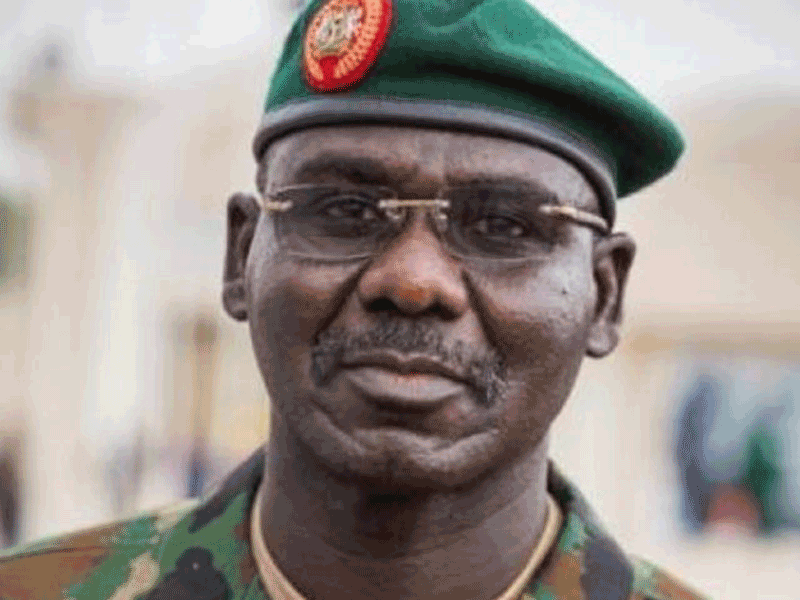- Russia to Supply Nigeria Military Hardware, Helicopters for Fight Against Boko Haram
The Russian government has promised to supply Nigeria with military hardware and helicopters to assist Nigeria in its fight against the Boko Haram sect, the Minister of Foreign Affairs, Mr. Geoffrey Onyeama has said.
The deal, which is already in the pipeline, is part of the efforts aimed at deepening co-operation between Russia and Nigeria.
Onyeama who disclosed this thursday in Moscow, said both countries were stepping up their co-operation in the efforts to tame Boko Haram and other terrorist groups in the world.
Russia also commended Nigeria’s exemplary role in ensuring peace and stability in Africa and the rest of the world, the minister said.
“Of course terrorism is an area we also want to co-operate with Russia, it’s a global challenge. They also face terror challenges and we look forward to stepping up our co-operation with Russia in the fight against terrorism.
“They have agreed to deliver some military equipment, some helicopters. They are very much in the pipeline,” Onyeama said.
He stressed that “Russia has shown great solidarity with us, and we really look forward to a vibrant and very dynamic relationship between our two countries”.
“We face a lot of conflict in Africa and also our country Nigeria, and we are looking to Russia for co-operation.
“Russia is showing great solidarity with us in confronting some of our security challenges in the area of terrorism, which has now become a global challenge.
“And we appreciate very much the importance of working together and sharing intelligence and we are delighted that Russia is on the same page with us,” he added.
The minister stressed that a strong Russia was a good thing for the world, explaining that a strong Russia will give the world balance.
“You might likely have balance, because if you have one country that is totally dominant, it might not always necessarily make for a balanced approach towards issues.
“We believe in multilateralism. We believe that the big issues of the day, global issues, should be addressed on a multilateral framework.
“That is the framework of the United Nations. And you are more likely to have that when you have different poles of strength and influence.
“If you have a unipolar world, you are also most likely to have a process that does not really have to have the consensus of many other countries,” he said.
Onyeama also stressed that Russia should engage with Africa, given the European country’s achievements in all human endeavours.
“We believe that such a great country that has achieved wonderful things in all sectors, should engage with Africa,” he noted.
Speaking on the gains of his visit to Russia, Onyeama said: “Russia is ready to engage more with Nigeria and engage more with Africa in the areas of priority to us and that is security and the economy and this is a very good thing.
“We are trying to diversify our economy and diversification is not just in strengthening various sectors, but also in engaging with every partner and Russia has unique value that they can add to our economic relations in the area of oil and gas, power, agriculture and also science and technology.
“These are areas they are particularly strong in and could help in our industrialisation drive.
“And for Africa too, in peace keeping and their role in the United Nations, as one of the key five permanent members of the Security Council, they will have influence in the resources the United Nations will make available for peacekeeping in Africa.
“Most of the peacekeeping duties undertaken by United Nations are in Africa and we will certainly need the support of Russia, as we know that there is a call by the other key four members on the Security Council to reduce the amount of money available for peacekeeping in Africa.
“So we look for Russia’s support in terms of the reform of the United Nations and also to support Africa in the UN, as a permanent member of the Security Council,” he added.
Meanwhile, Nigeria has been commended for its leadership role in the socio-economic and political growth of the African continent.
The commendation was re-echoed at the Africa Day celebration held in Moscow as part of the programme lined up for Onyeama’s visit.
The presentation of the Russian Foreign Affairs Minister, Mr. Sergey Lavrov and other African Ministers of Foreign Affairs reflected the great positive role Nigeria has been playing in global diplomacy.


 Forex3 weeks ago
Forex3 weeks ago


 Naira2 weeks ago
Naira2 weeks ago
 Billionaire Watch2 weeks ago
Billionaire Watch2 weeks ago






 Naira3 weeks ago
Naira3 weeks ago






 Naira2 weeks ago
Naira2 weeks ago


 Naira1 week ago
Naira1 week ago




 Naira4 weeks ago
Naira4 weeks ago






 Naira1 week ago
Naira1 week ago





















